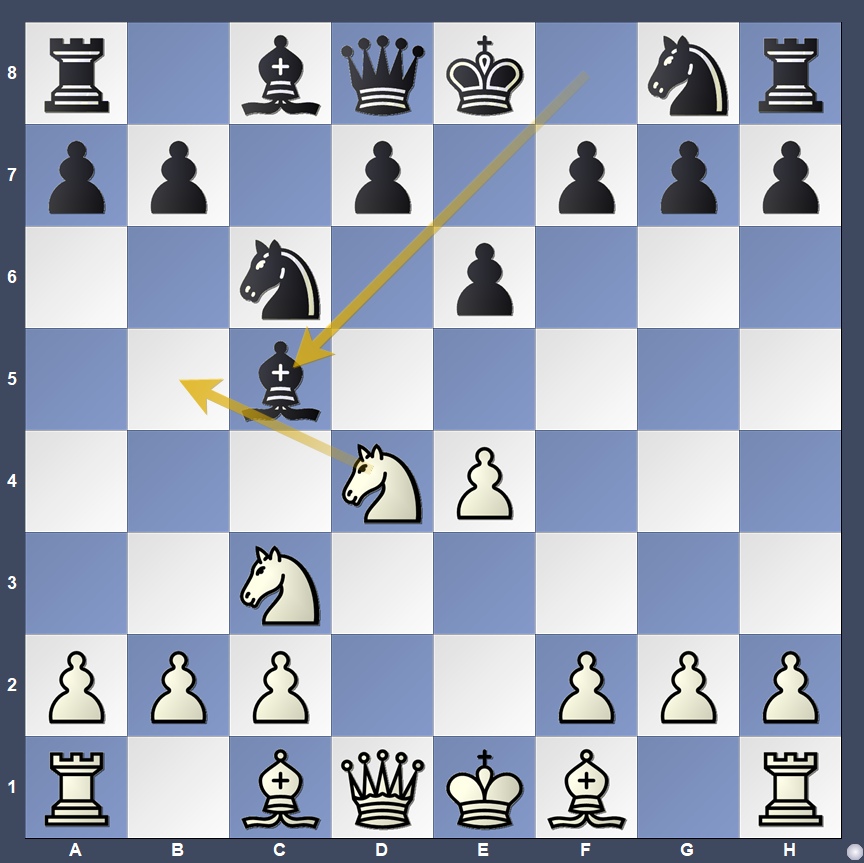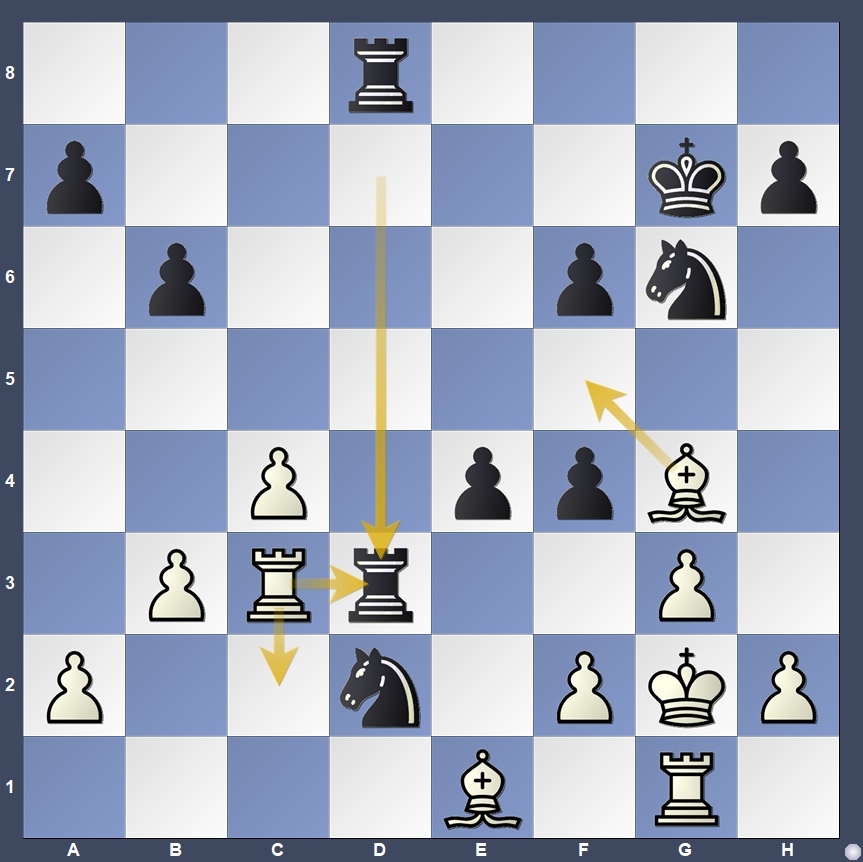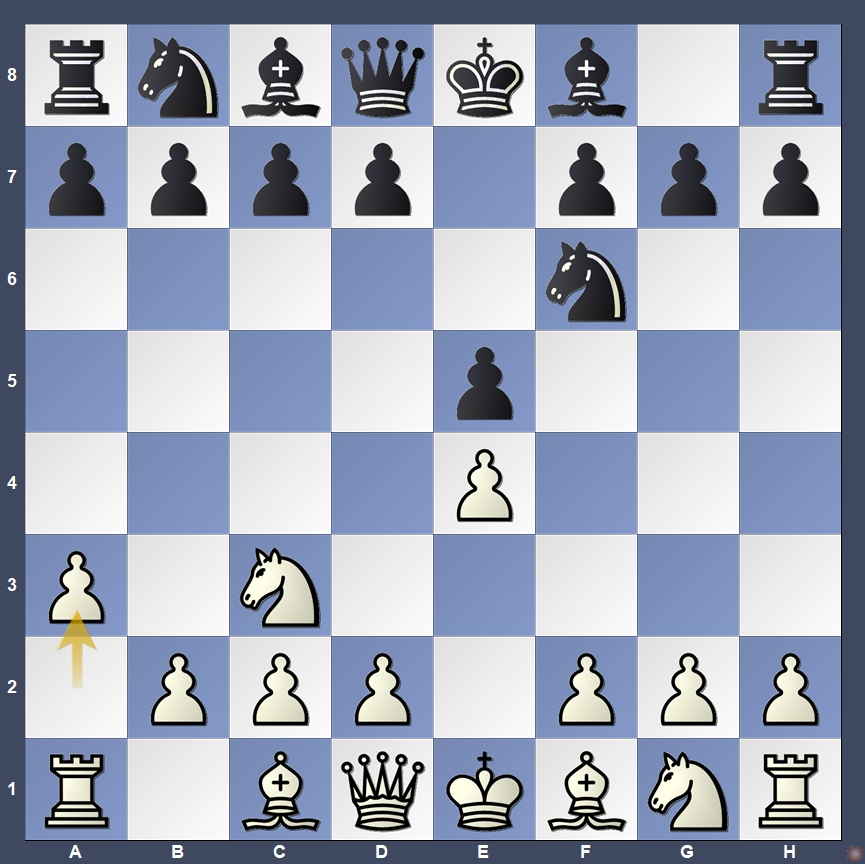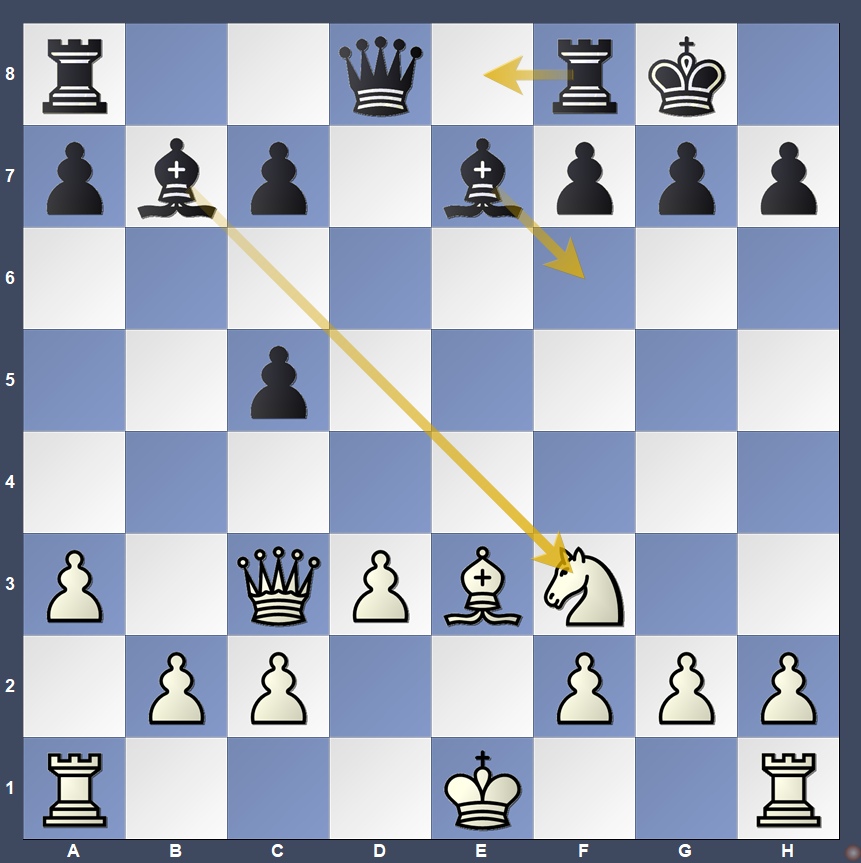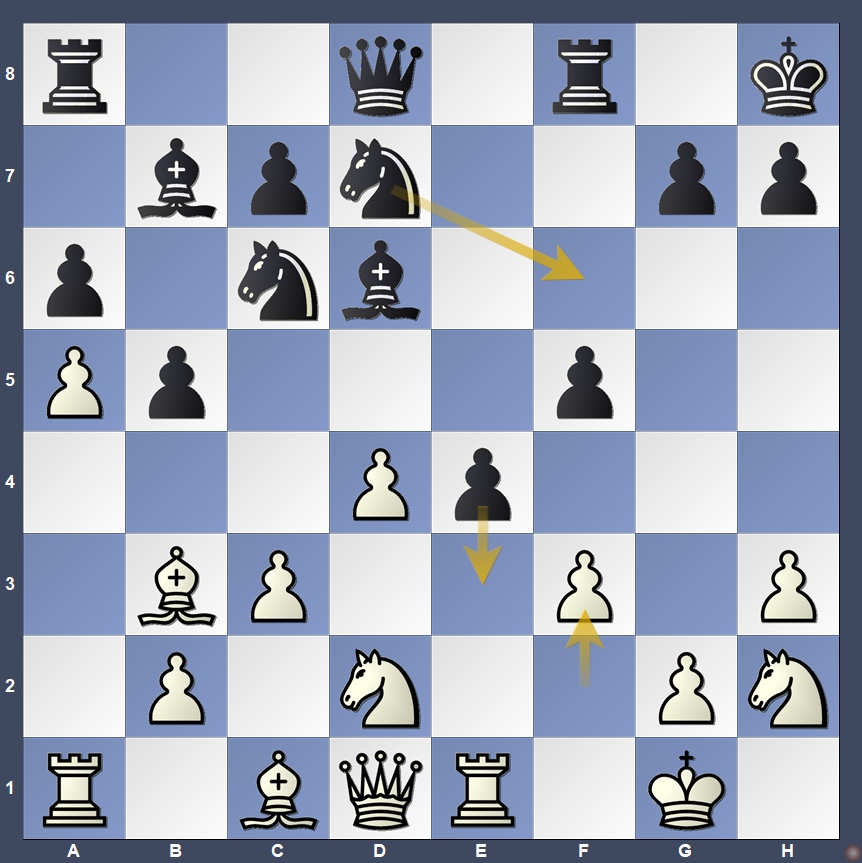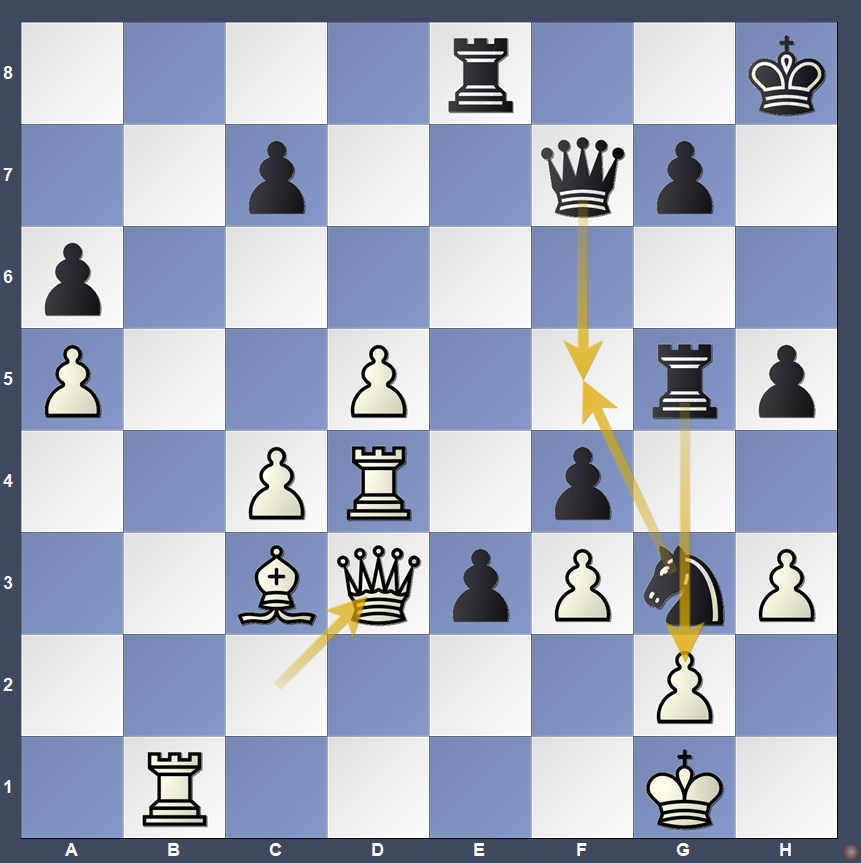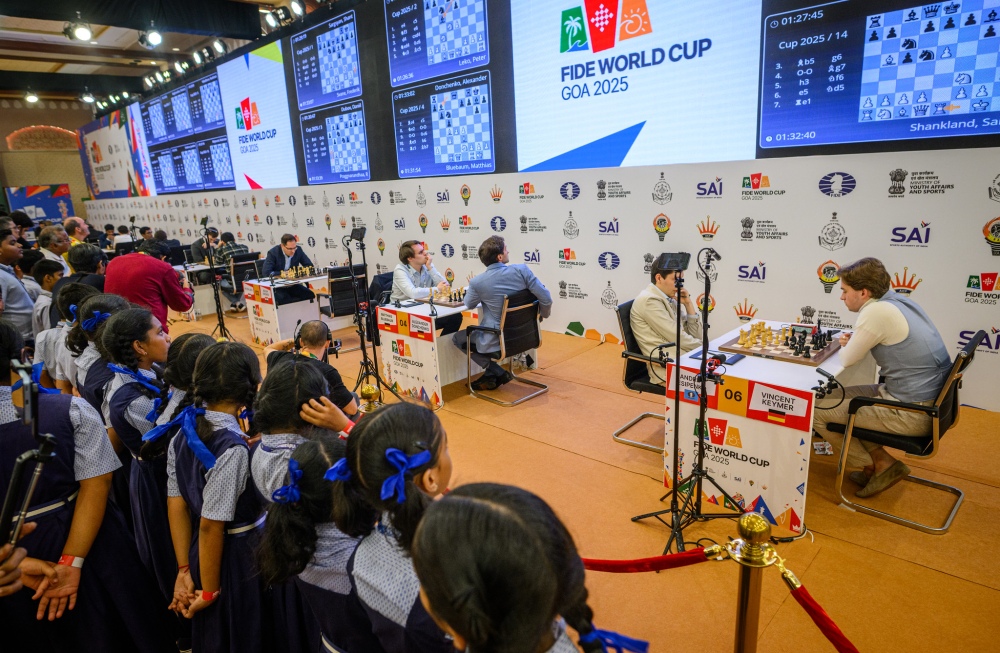
It was a day marked by precision, patience, and deep preparation in Goa, as the players returned to the board following the rest day. Out of sixteen classical encounters, only two produced decisive results, yet every game offered a glimpse into the razor-sharp margins that define modern elite chess.
From surprise novelties in the opening phase to defensive masterpieces under time pressure, the round underscored how difficult it has become to win at this level, even with the slightest of edges.
The spotlight victories belonged to GMs Levon Aronian and José Eduardo Martínez Alcántara. Aronian’s creative use of the rare 3.a3!? in the Vienna Game caught Radosław Wojtaszek completely off guard, while Martínez delivered another powerful performance in Goa, outplaying Alexey Sarana in dynamic fashion.

Elsewhere, draws were the order of the day, though many of them – such as Dubov–Praggnanandhaa and Svane–Sargsyan – were full of energy, resourcefulness, and unrelenting accuracy.
Despite just two decisive outcomes, the round was anything but dull. Several players, including Lorenzo Lodici, Vincent Keymer, and Nodirbek Yakubboev, showed impressive defensive resilience, while others like Awonder Liang and Daniil Dubov will be reflecting on missed chances.
With the first classical games now complete, tension is rising: one more classical battle remains before potential tiebreaks decide who advances to Round 5. If today’s play was a display of calculation and control, tomorrow promises fireworks.
Let’s take a deeper look into this afternoon’s action at the Rio Resort on Goa.

Several officials visited the round this afternoon, including Mr. Michael Lobo, Chairman of Goa State Infrastructure Development Corporation and Member of the Legislative Assembly.
The first game to finish didn’t take long. Just over an hour into the round, GM Peter Leko (2660) and GM Arjun Erigaisi (2769) agreed to a draw, but not before a brief theoretical skirmish in a sharp Sicilian line.
Seeking to surprise the Hungarian veteran, Erigaisi unleashed the Cobra Variation in the Sicilian Taimanov – a rare and venomous choice he had played only once before, back in 2012, at the Raisoni Memorial U-15 when he was rated just 1548.
Visibly taken aback, Leko spent over fifteen minutes choosing his response before deciding on the principled 6.Ndb5. Yet it soon became apparent that he was out of his preparation in this sharp line.
Erigaisi pressed forward energetically, even sacrificing a pawn to seize the initiative on the queenside in a position with opposite-side castling. However, with his time ticking dangerously low, Leko wisely opted for an unforced threefold repetition, ensuring a half-point and avoiding unnecessary risk.
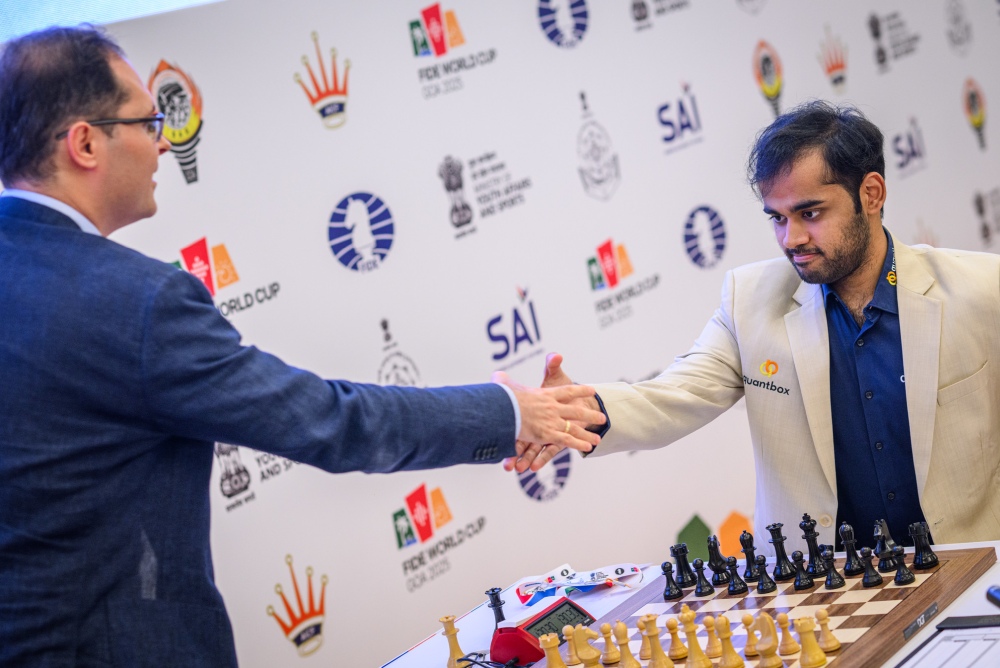
A comfortable outcome for the Indian grandmaster, who will now have the rest of the afternoon to prepare for what could be a decisive encounter tomorrow, when he will have the White pieces.
An hour passed before the next game concluded, roughly marking the halfway point of the playing session. Defending with the Black pieces, GM Aleksey Grebnev (2611) opted for the ever-solid Petroff Defence against GM Maxime Vachier-Lagrave (2737).
Both players rattled off the first sixteen moves in textbook fashion, following a line deeply explored in modern correspondence chess, a domain heavily guided by computer analysis, and therefore a reliable touchstone for elite preparation. Unsurprisingly, all known correspondence encounters in this variation have previously ended in draws.

The Frenchman was the first to deviate from established theory, introducing a fresh idea with 17.Rab1. Grebnev, fresh off his 25th Dubai Open victory earlier this year – took his time, spending nearly twenty minutes to navigate the complications and coolly neutralize White’s modest initiative.
The balance never tilted decisively either way, and soon after, the players agreed to a threefold repetition. A pragmatic outcome for both sides, and one that quietly hints this tightly contested match could well be headed for a tiebreak showdown.
Three more draws were signed before the first decisive game of the afternoon finally arrived. Among them, GM Wei Yi (2754) was unable to make any headway against GM Parham Maghsoodloo (2697).

The 2018 World Junior Champion and Iranian National Champion in 2017, 2018, and 2021, Maghsoodloo has long been a fixture near the 2700 mark and enjoys a strong reputation for his balanced mix of positional solidity and dynamic resourcefulness.
Facing the ever-dangerous Wei Yi, Maghsoodloo chose the Caro–Kann Defence, meeting the Exchange Variation with an early queen trade, a practical decision against an opponent known for his sharp attacking style. Though this left him with an isolated queen’s pawn, the Iranian defended confidently and never appeared in serious trouble.
A calm and professional performance from Maghsoodloo, who comfortably secured the draw and perhaps another sign that this match, too, may be destined for tiebreaks.
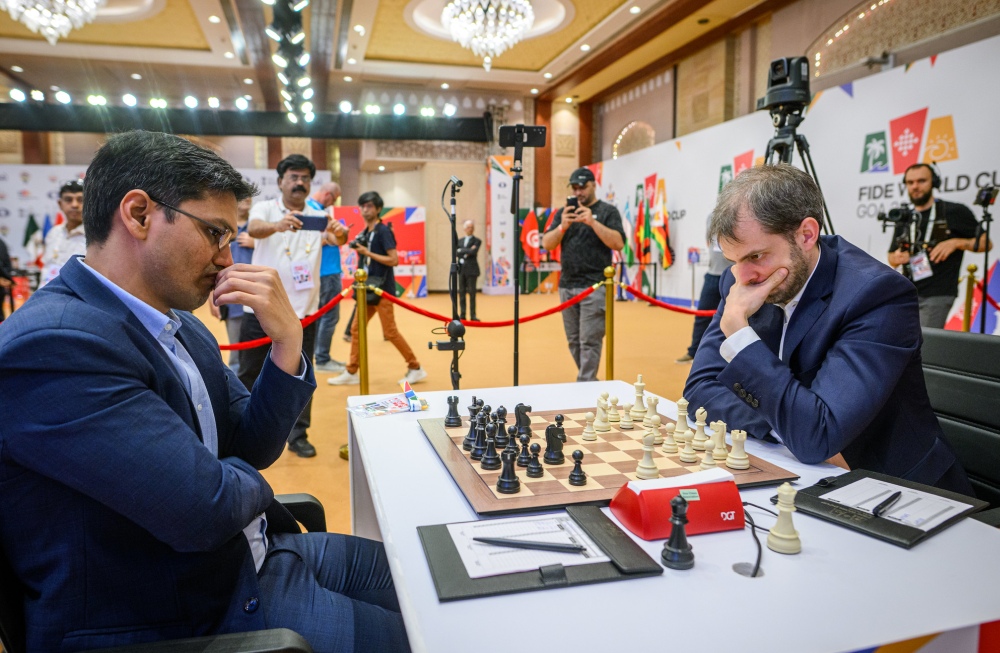
GM Nils Grandelius (2645) and GM Pentala Harikrishna (2697) produced an impeccably balanced encounter, both registering an impressive 98% accuracy according to computer evaluation.
The game followed a well-trodden strategic line of the Ruy Lopez, leading to a symmetrical middlegame and eventually to a completely equal rook endgame after thirty-two precise moves. Neither side faltered, and the draw was a fair result of flawless technical play.
For Harikrishna, it’s another steady performance, particularly valuable considering his excellent form with the White pieces in previous rounds. With the colours reversing tomorrow, spectators can likely expect a sharper, more dynamic battle.
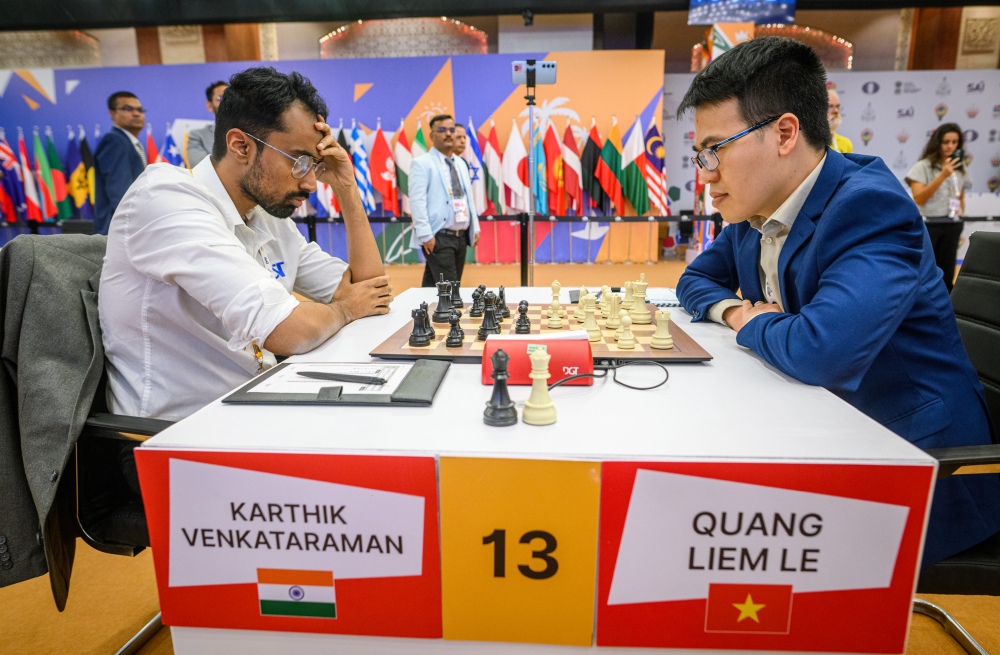
If the previous game clocked in at 98%, this one raised the bar even higher. GM Le Quang Liem (2729) and GM Karthik Venkataraman (2579) delivered a near-flawless performance, each achieving an astonishing 99% accuracy score.
Playing with the Black pieces, India’s national champion was well prepared and solid throughout. He equalized comfortably and had little difficulty steering the game toward a peaceful conclusion, securing a well-earned half point against one of Asia’s strongest grandmasters.
What came as a mild surprise, however, was Le Quang Liem’s choice of the London System — a line he famously covered in detail in his own Chessable “Lifetime Repertoire” course. It’s not every day that a top-level player tests their own published repertoire over the board!
In his post-game interview, Karthik commented with a smile:
“I checked my notes on the London System, but it’s funny — I completely forgot to review his course, so I had to play on my own.”
“I’m quite optimistic about my chances here. I was worried about getting a slight disadvantage in the opening today, but overall I managed to draw quite easily,” he added.
A confident and composed showing from the Indian champion, who continues to demonstrate remarkable resilience and poise at this level.
The first decisive result of the day came courtesy of GM José Eduardo Martínez Alcántara (2644), who produced another superb victory, this time with the Black pieces against GM Alexey Sarana (2661).

The Peruvian grandmaster is on a remarkable run in Goa, riding high on confidence and buoyed by enthusiastic support from fans across South and Central America.
After a tense middlegame struggle, Sarana found himself under growing pressure as Martínez Alcántara’s precise and energetic play began to take over.
By this stage, Sarana’s position was already precarious. The only way to keep fighting was 33.Rxd3 Rxd3 34.Bf5, though even there 34…Ne7 would have maintained a clear advantage for Black.
Instead, after thirteen minutes of thought, Sarana went astray with 33.Rc2?, and Martínez Alcántara pounced immediately: 33…Ne5! 34.Bf5 Ndf3! 35.Bxe4 Nxg1 36.Bxd3 Ngf3! With both bishops suddenly under attack, Black emerged with an extra piece, and the rest was a matter of technique.
In his post-game interview with WIM Charlize van Zyl, Martínez Alcántara was quick to credit his team: “My opening preparations are working thanks to my second, for which I thank him immensely.”
He also spoke candidly about his evolution and mindset: “Now I’m trying to play better openings, leaving the Philidor aside. I’m happy because I know that if I train like these guys, I can raise my level and keep improving. But I have to stay humble: the match isn’t over yet.”
A confident, mature performance from the Peruvian star, whose form and focus continue to make him one of the most compelling stories of the tournament.
Three more games concluded peacefully before the second decisive result appeared on the scoreboard.
The encounter between GM Sam Shankland (2654) and GM Richard Rapport (2724) was a model of precision, a solid and balanced struggle with barely a hint of inaccuracy from either player. Though Shankland was perhaps a touch on the defensive side, he was never in real danger, and the draw was a logical outcome of sound, careful play from both sides.
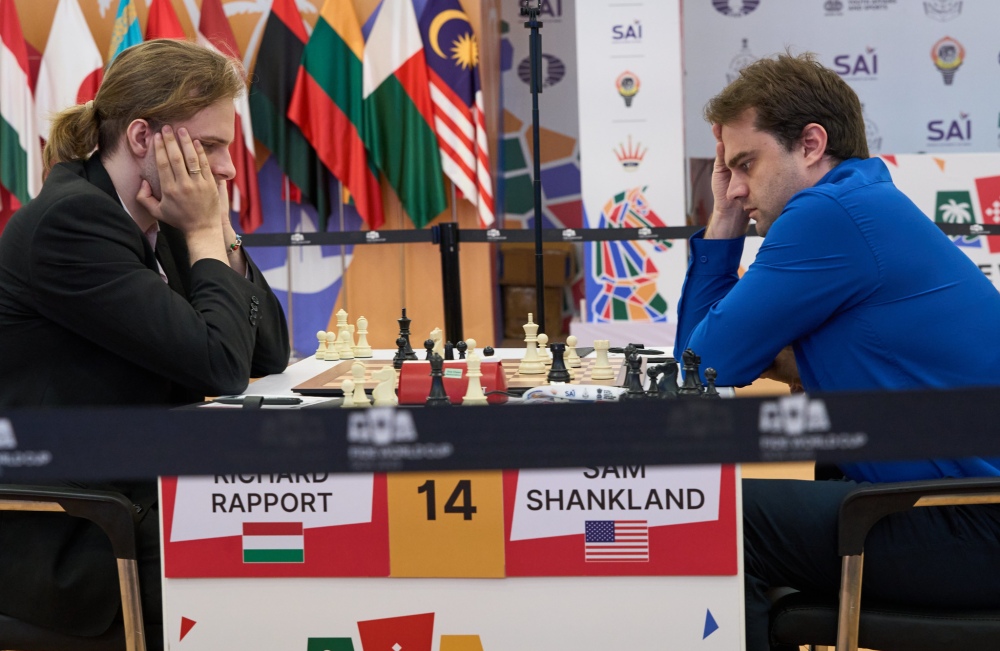
Meanwhile, GM Lorenzo Lodici (2560) continued his impressive run here in Goa, holding GM Samuel Sevian (2698) to a confident draw with the Black pieces. The Italian chose the Catalan Defence, navigated the opening flawlessly, and maintained an excellent 98% accuracy throughout. There was simply no room for aggression, and the players agreed to a draw exactly on move thirty.
Lodici once again demonstrated why he’s being recognized as one of Europe’s emerging talents: though his rating remains in the 2500s, his recent performances show clear potential to challenge much stronger opposition on a consistent basis.
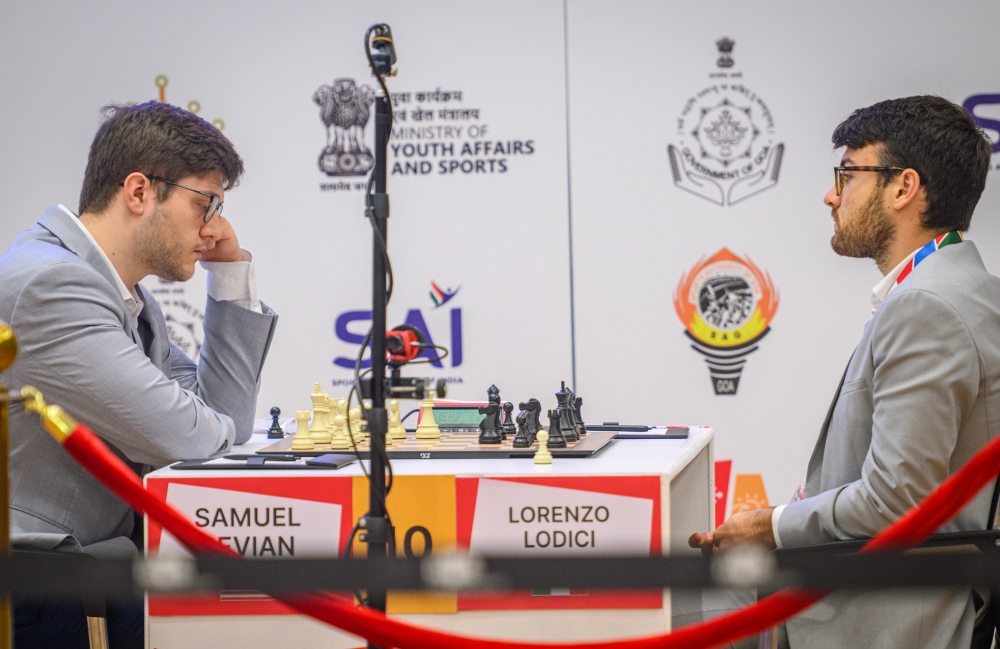
In another all-German encounter, GM Alexander Donchenko (2641) was equally pleased with his 99% accuracy draw against GM Matthias Blübaum (2687). Adopting the Grünfeld Defence, Donchenko equalized effortlessly and was never seriously tested by his national teammate.
It seems increasingly likely that this match — like several others today — may be heading for a tense and dramatic tiebreak conclusion.
The second decisive result of the afternoon came just after the third hour of play. Two-time World Cup winner GM Levon Aronian (2722) scored an important victory over GM Radosław Wojtaszek (2654), pulling ahead in their two-game mini-match against Poland’s Olympiad stalwart.

Aronian surprised his opponent right from the start. Playing the Vienna Game, the Armenian-American grandmaster unveiled the extremely rare 3.a3!?, a move that instantly took Wojtaszek out of known territory.
“I checked this line a bit: I even spoke with Fabiano Caruana about it,” Aronian revealed after the game. “It’s not such a good move, but it can be useful as a surprise weapon if your opponent is unaware. I was lucky that Radek was not too familiar with it. As many regular ideas lead to a draw, sometimes you can try other ideas — but you can’t just play anything.”
The novelty paid off. Wojtaszek soon found himself in an awkward position, unable to fully equalize despite having the bishop pair.
The critical moment came on move twelve. After Aronian’s 12.Be3, Wojtaszek, a pawn down but holding the bishop pair, needed to play actively with 12…Bf6, followed by 13…Bxf3 (or 12…Bxf3 straight away), which would have led to interesting complications. Instead, he chose the more passive 12…Re8?, and after 13.0–0–0, his position lacked the dynamic counterplay required for full compensation.
From there, Aronian gradually simplified the position, exchanged queens, and converted his extra pawn in the endgame with characteristic precision.
After the game, the always-charismatic Aronian also commented on his signature style:
“India is very colourful! I feel good about it, and I’ve actually bought a few more shirts here to add to my collection.”A stylish win both on and off the board, as Aronian takes the lead and moves one step closer to securing his place in the next round.
As the first time control (40 moves in 90 minutes) approached, four more games concluded peacefully, though one of them provided more than its share of excitement before settling into a draw.
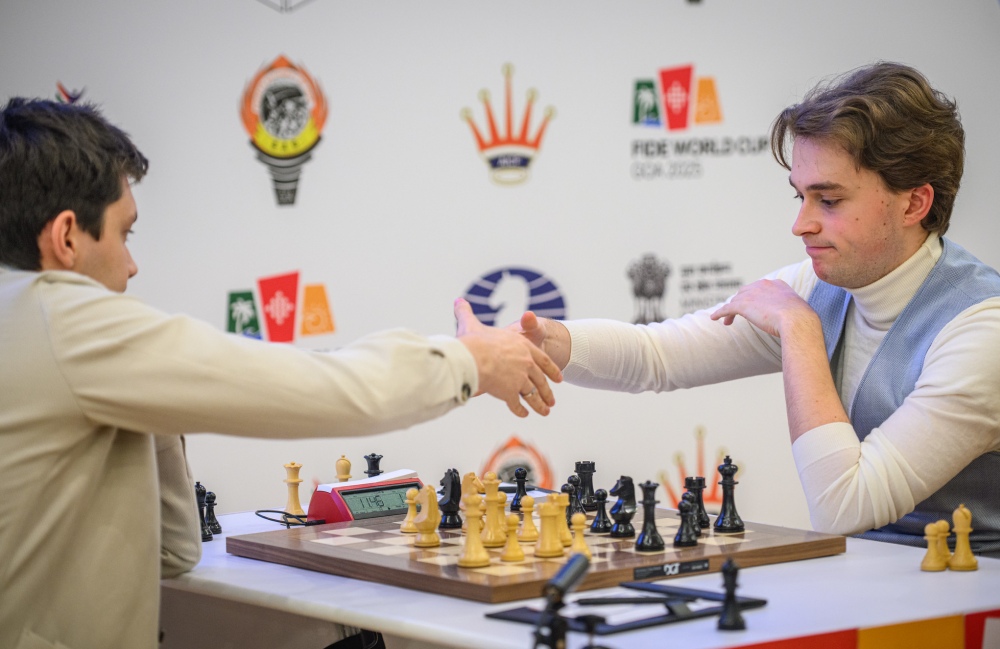
In a symmetrical Italian, GM Andrey Esipenko (2693) faced GM Vincent Keymer (2755). The German number one maintained excellent control throughout, keeping the balance with confident and precise play. After around thirty moves, the game reached a threefold repetition, ensuring a comfortable draw. A solid result for Keymer, who will have White in the second game, always a psychological advantage in a short match.
The next board featured another Italian, as GM Frederik Svane (2638) tried to press against GM Shant Sargsyan (2667). Despite Svane’s best efforts, the Armenian defended resourcefully, achieving an impressive 99% accuracy score. In fact, it was Sargsyan who eventually forced Svane to repeat moves with his queen to avoid losing. The German shook his head in mild disbelief at the missed opportunity, a sign of just how fine the margins can be at this level.
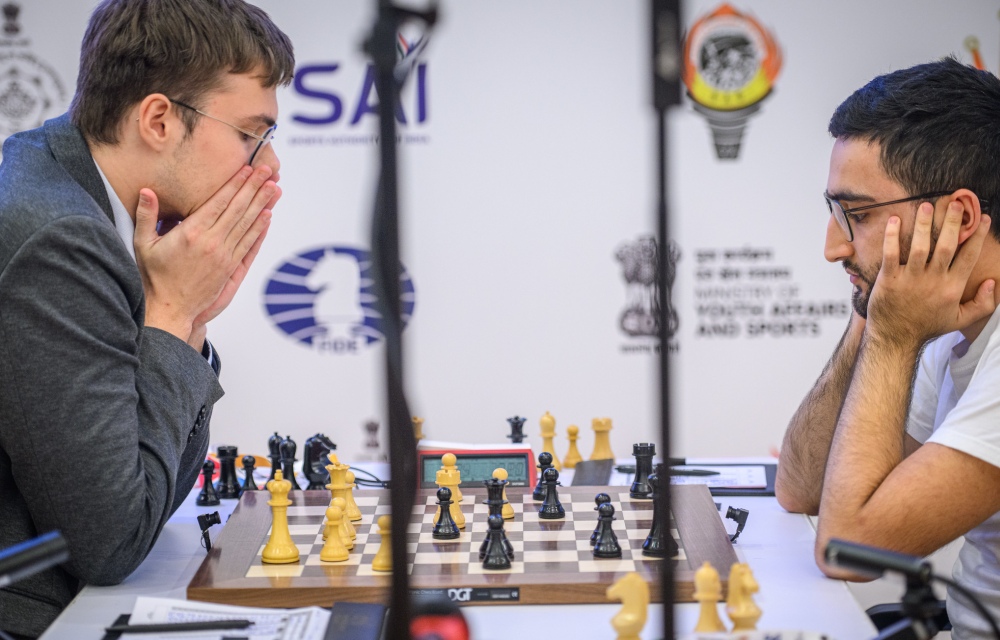
Meanwhile, the clash between GM Yu Yangyi (2720) and GM Javokhir Sindarov (2721) was another example of high-level precision. The players chose the Catalan Opening, which soon led to a series of exchanges and a technically balanced endgame. Yu pressed with an extra pawn, but Sindarov defended perfectly, leaving no real winning chances.
In contrast to many of the day’s quieter encounters, the clash between GM Praggnanandhaa R (2771) and GM Daniil Dubov (2684) was full of tension and creative energy, even though it ultimately ended in a draw.
Dubov steered the game into a Marshall-type position from the Ruy Lopez, a dynamic battleground that suited his imaginative style.
At this point, the 2023 World Cup finalist Praggnanandhaa had just played 17.f3, directly challenging the pawn on e4. Dubov invested nearly half of his remaining time calculating the sharp pawn sacrifice 17…e3, intending to follow up with 18…Ne7–d5, a sequence that could have given him excellent compensation and attacking chances.
Ultimately, Dubov decided against the speculative line, opting instead for a more measured continuation 17…Nf6. Praggnanandhaa stabilized the position, though he still remained clearly worse.
The critical moment came just before the first time control, on move 39.
With less than three minutes on his clock and two moves to reach move forty, Dubov chose 39…Qf5, leading to queen exchanges and an eventual draw. However, analysis shows that the much stronger continuation was 39…Nf5!, exploiting the vulnerability of the white rook on d4.
After 40.Rxf4 Rxg2! 41.Kxg2 Qg6+, Black would either deliver mate or win the queen on d3 — a missed opportunity that could have turned the game decisively in Dubov’s favor.
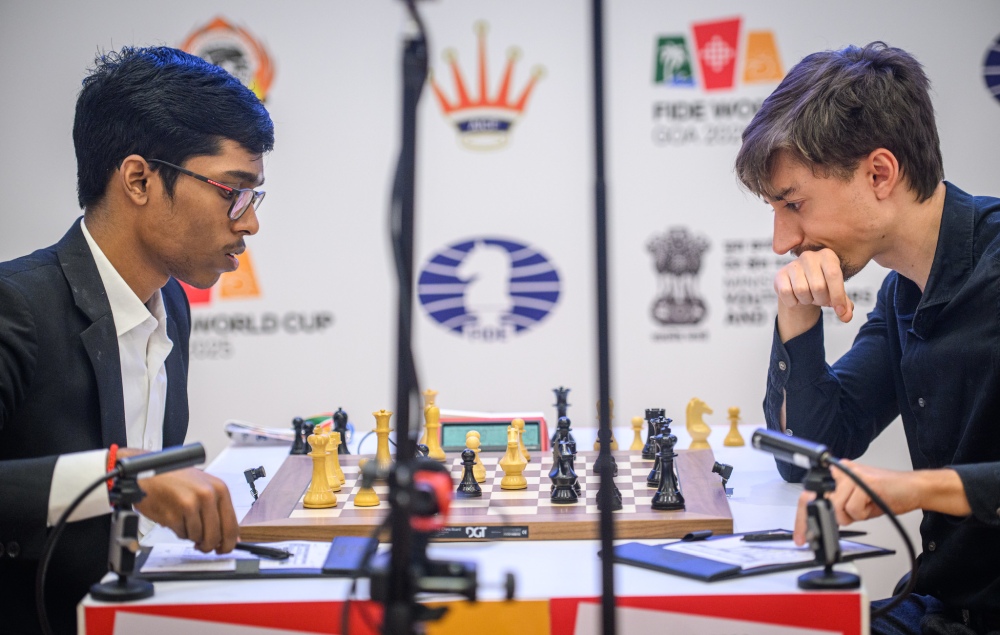
The final two games to conclude the round also ended in draws, wrapping up an intense day of classical play.
The encounter between GM Pranav V (2641) and GM Nodirbek Yakubboev (2689) was an exemplary display of accuracy and discipline, but lacked any real fireworks. After 80 moves of near-perfect play, neither side erred, and the game was drawn by repetition.
A solid, if somewhat uneventful, result that leaves observers wondering whether Yakubboev will adopt a more ambitious approach with the White pieces in tomorrow’s second game.
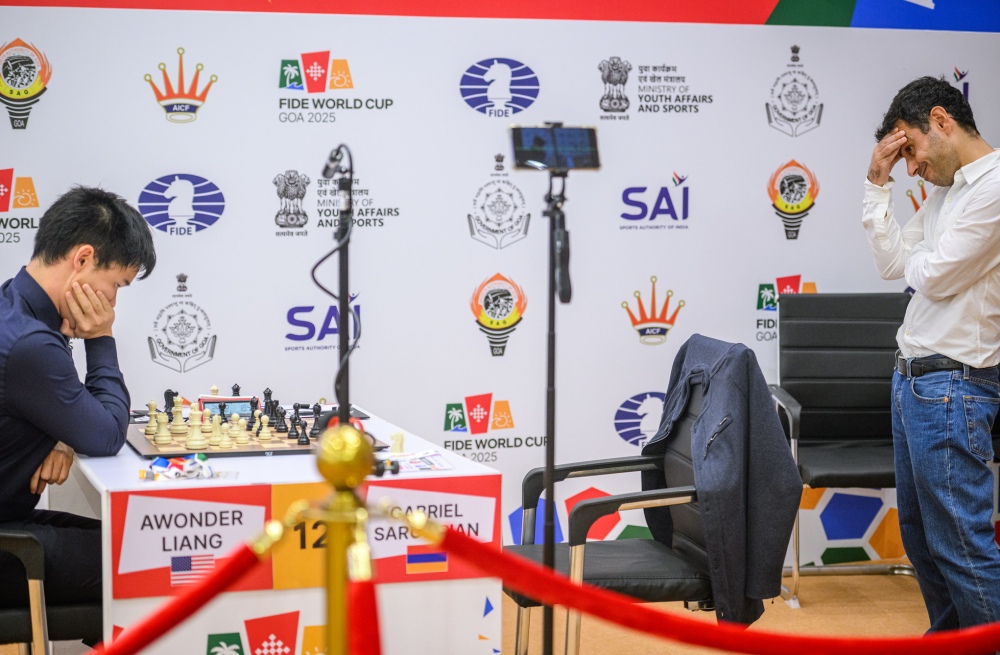
The day’s final duel, between GM Awonder Liang (2710) and GM Gabriel Sargissian (2624), was of a very different nature. The young American grandmaster obtained several promising chances but failed to convert against the ever-resourceful Armenian, who defended heroically throughout the middlegame and into the endgame.
For Liang, the draw will likely feel like a missed opportunity but with one more classical game to go, he’ll be hoping to regroup mentally and strike back when he gets another chance tomorrow.
With just a handful of decisive results among a sea of razor-sharp draws, the day’s play in Goa showcased the extraordinary precision and resilience of the modern elite. Even in seemingly quiet encounters, the level of preparation, defensive accuracy, and psychological balance on display was remarkable.
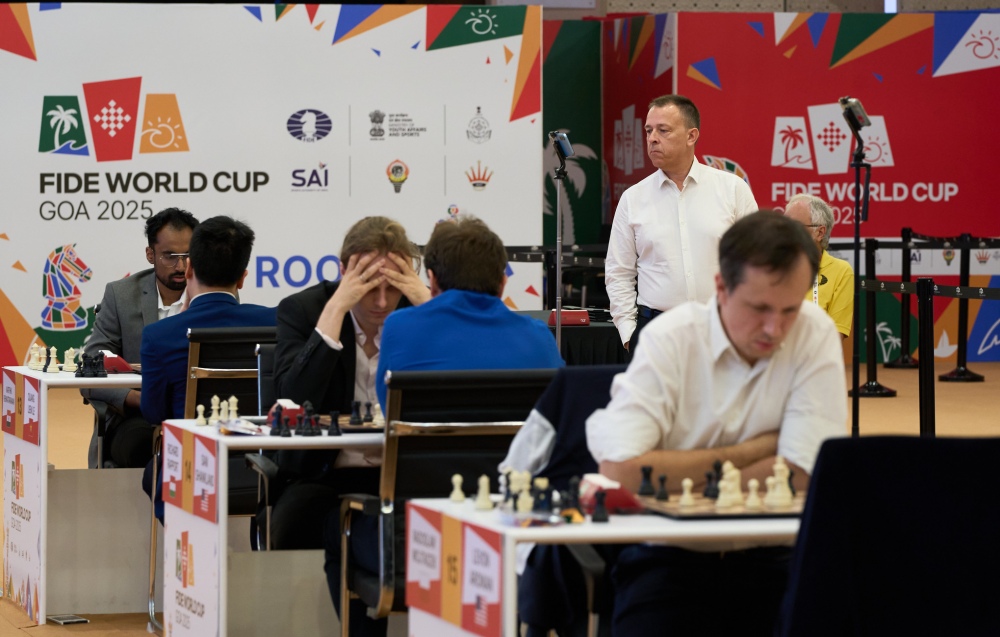
As the players head into the second classical games tomorrow, many of them with everything still to play for, fans can expect the tension to rise and the fighting spirit to shine through. If today was a day of control, tomorrow promises to be one of courage.
Game 2 of Round 4 will be played on November 12that 3 PM local time.
The action can be followed live on the FIDE YouTube Channel, featuring expert commentary by GMs Evgenij Miroshnichenko and Jan Gustafsson.
To watch the games in person, tickets can be purchased [HERE]
Official website: worldcup2025.fide.com/
Written by IM Michael Rahal (Goa, India)
Photos: Michal Walusza and Eteri Kublashvili



